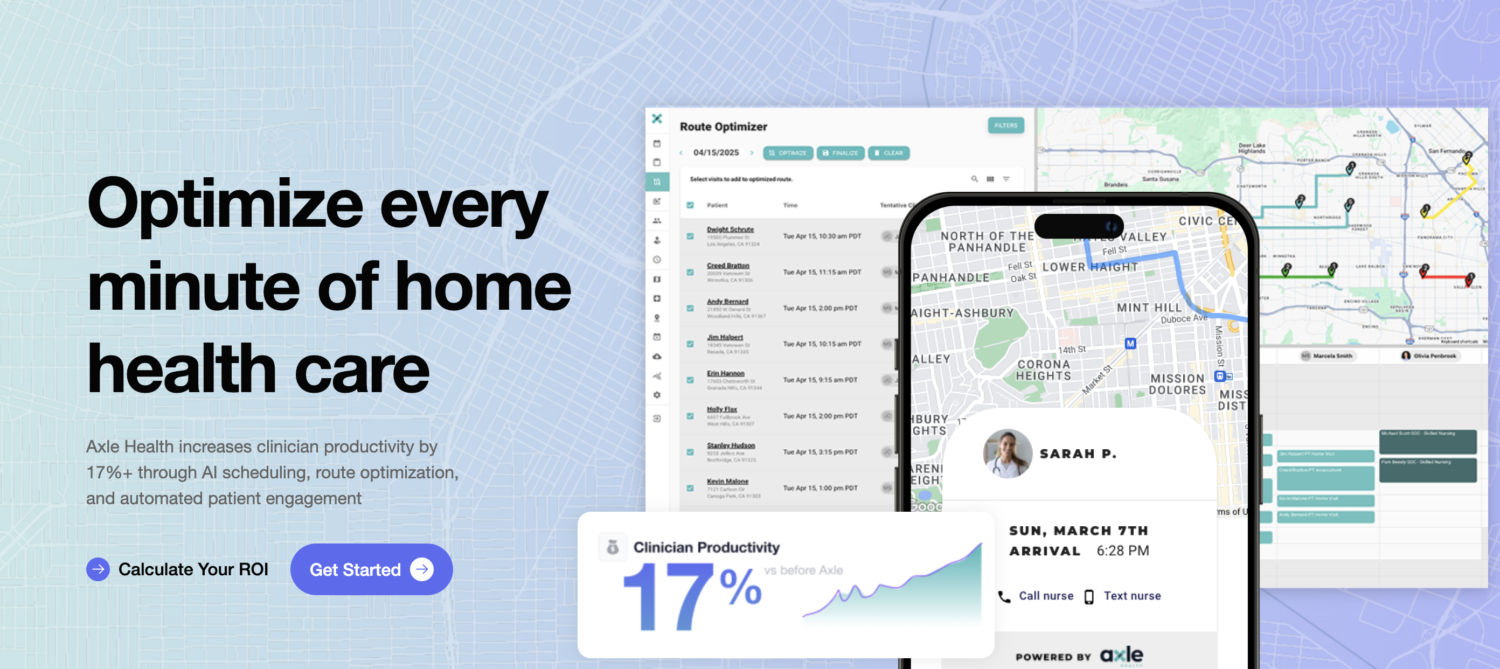
What You Should Know:
– Axle Health, a pioneering technology company focused on transforming home healthcare operations secures $10M in Series A financing round led by F-Prime, with participation from Y Combinator, Pear VC, and Lightbank.
– The new capital infusion will fuel Axle Health’s aggressive expansion plans. The company intends to scale its proprietary healthcare logistics platform, enhance its AI-powered scheduling and routing algorithms, accelerate the development of its generative AI patient engagement solutions, and grow its engineering and operations teams.
Fueling the Shift to Efficient Home-Based Care
The healthcare industry is witnessing a significant move towards home-based care, a trend accelerated by evolving patient preferences, value-based care initiatives, and advancements in remote monitoring technologies. Axle Health aims to provide the essential technological infrastructure for this shift.
“The healthcare industry is experiencing a fundamental shift toward home-based care,” said Adam Stansell, CEO of Axle Health. “With this investment, we’re positioned to meet the explosive demand for home healthcare by giving providers the technological infrastructure they need to scale operations efficiently. Our mission is to make high-quality home healthcare accessible to everyone who needs it, regardless of location or socioeconomic status.”
Intelligent Logistics Solving Core Home Healthcare Challenges
Axle Health’s platform directly addresses the critical operational hurdles that have historically limited the scalability and efficiency of home healthcare services. The company’s EMR-integrated software solution enables healthcare organizations to seamlessly deploy clinicians for in-home visits through smart scheduling, optimized routing, and automated patient engagement. This technology-first approach has reportedly led to increases of up to 30% in overall clinician productivity.
At the heart of Axle Health’s offering is its patent-pending healthcare logistics engine. This system combines sophisticated machine learning algorithms with years of healthcare operations expertise, processing millions of data points—including traffic patterns, provider credentials, patient needs, and geographic constraints—to optimize routes in real-time and predict potential bottlenecks.
